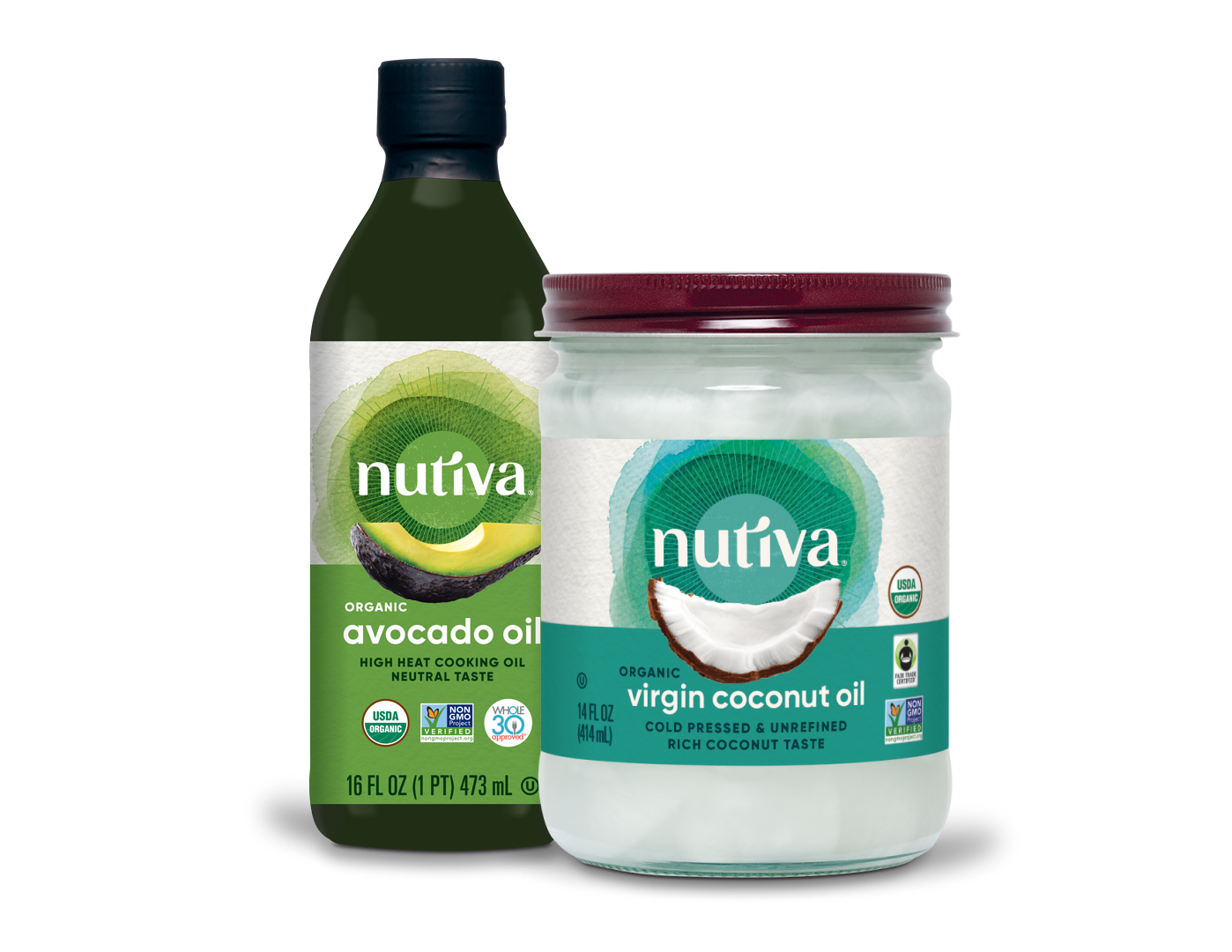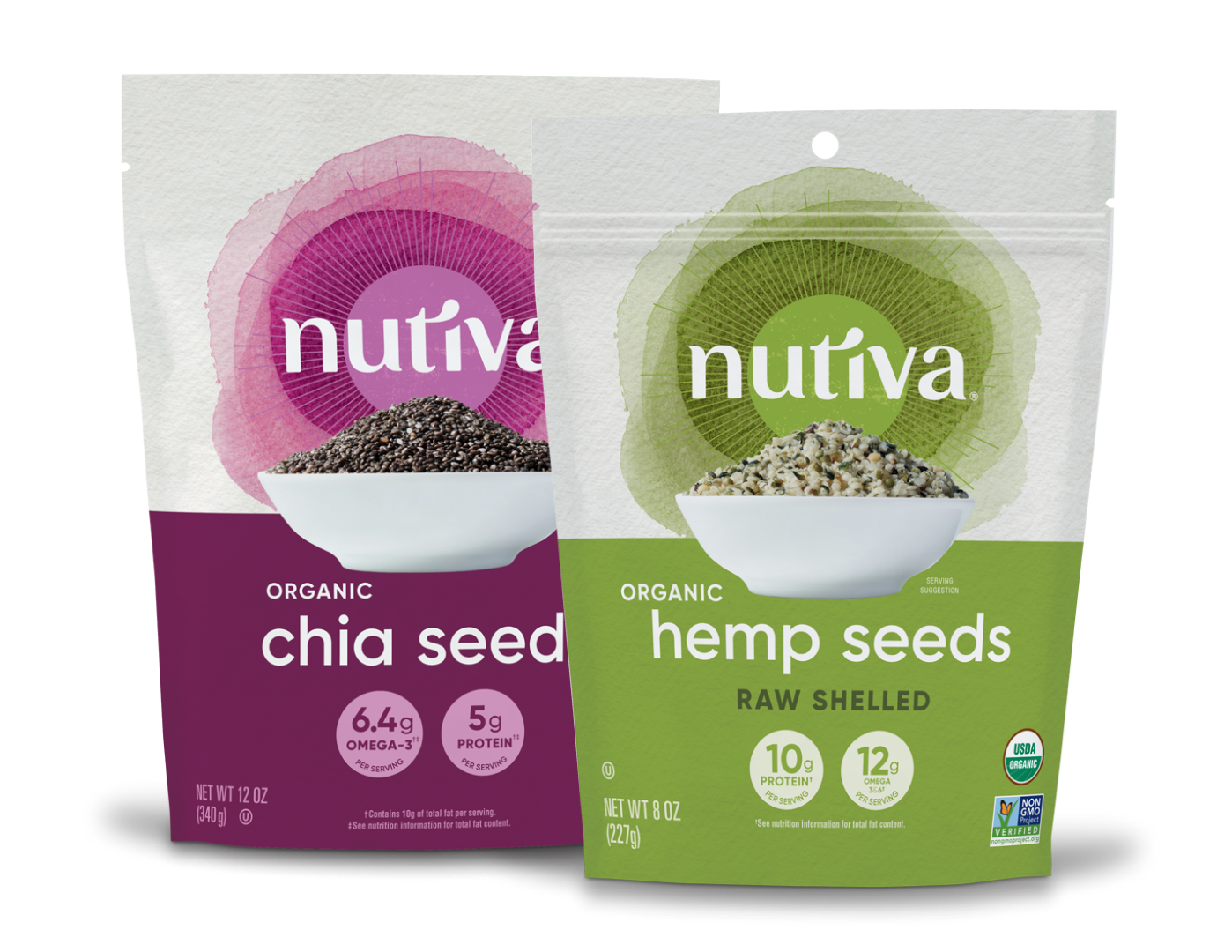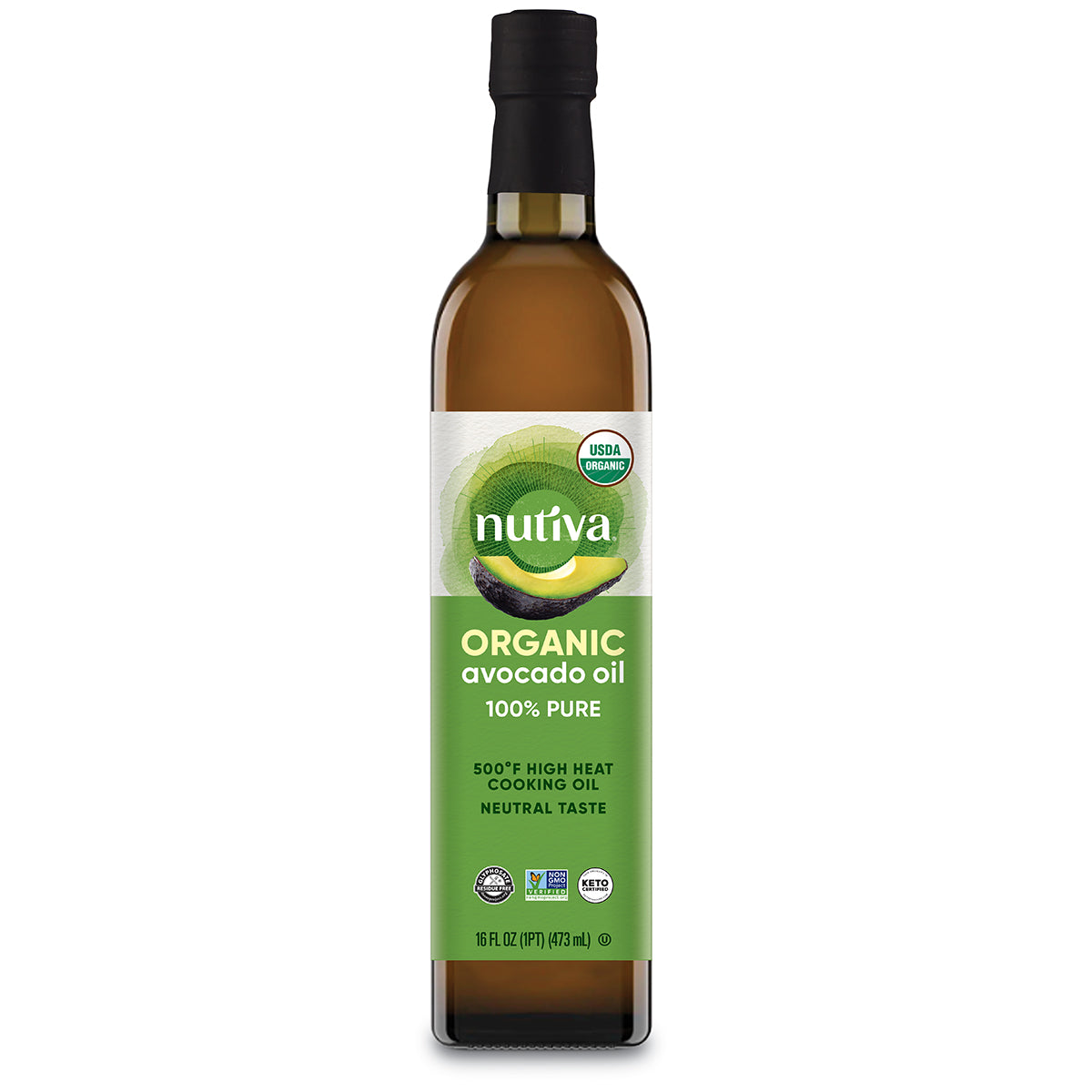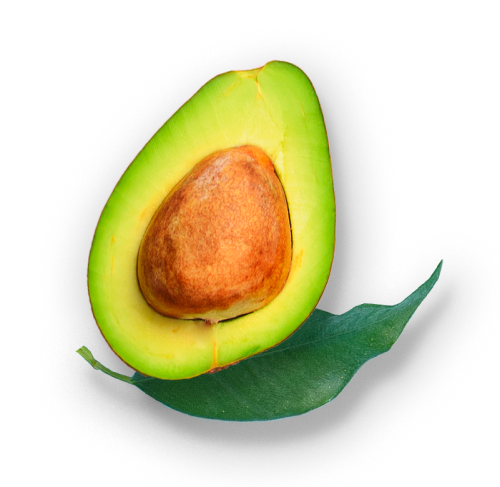Avo-Conscious: Regenerative & Organic for People & Planet
Nutiva is fueled by our belief that a bright future for all is rooted in healthy food. Avocado oil is the food that’s bringing this vision into action in Ethiopia through our supply network of over 78,000 small organic farmers. Made from conflict-free, peacefully sourced and fully traceable Ethiopian avocados. Read on to learn how our climate-smart avocado oil is promoting ecological and social thriving by supporting on-the-ground initiatives like intercropping, farmer field schools and female-run nursery programs.

When it comes to our organic avocado oil, we’ve made an avo-conscious commitment. This means that the avocados we source to make our oil are verified to meet these key criteria:
- Conflict-free
- Climate-smart
- Community-first
Curious what makes our avocado oil conflict-free? Read our blog here to understand why we source ours from Ethiopia instead of Mexico as is typical of most avocado oils.
As for climate-smart and community-first? That’s what we’ll be digging into here—read on to learn how these qualities make our oil uniquely avo-conscious.
Climate-Smart: Beyond Sustainability to Regeneration
Since day one of our 20-year journey as a company, Nutiva has been devoted to offering exclusively organic and non-GMO products. Our legacy continues with our avocado oil. USDA Organic certification and Non-GMO Project verification confirms that the avocados used to make our oil are grown without the use of synthetic pesticides, herbicides or fertilizers, and are never genetically modified. That’s not just good news for you, but also the planet. (We call that a win-win!)

However, we go far beyond organic to ensure that the cultivation of avocados in our supply network are not simply sustainable—that is, sustaining ecological health in its current state by avoiding further degradation. In the face of our global climate crisis, a “do no harm” approach isn’t enough. What we need most is repair and revitalization. It’s as critical as ever that we improve the health of our planet by reversing the harm caused by conventional agriculture and industrial farming.
Thankfully, mitigating the ill effects of climate change is possible with an ecologically-oriented approach to farming known as regenerative agriculture. According to Regeneration International, the term regenerative agriculture describes “practices that, among other benefits, reverse climate change by rebuilding soil organic matter and restoring degraded soil biodiversity—resulting in both carbon drawdown and improving the water cycle.”
We’re proud to say that our farming partners in Ethiopia are committed to cultivating avocados using regenerative practices that nourish the ecosystems in which they’re grown.
Replenishing via Polyculture
Across our network of smallholder farms, avocados are grown as shade trees for coffee alongside a broader variety of native plants using a practice called intercropping. Shade-grown coffee may be known for its quality, but its perks don’t end there.
The result is a biodiverse landscape known as a polyculture which more closely resembles a natural ecosystem than the single crop monocultures typical of industrial agriculture (think: soy and corn). With trees at the heart of these deliberately biodiverse agricultural system, this approach is also called agroforestry since it emulates the natural organization of a forest.

Technical terms aside, the key is that cultivating a diversity of plants has a diversity of benefits. According to the Agroforestry Research Trust, agroforestry systems include:
- improved soil health (increased organic matter, biological activity, and structure)
- more efficient nutrient cycling
- reduced incidence of pests and diseases
- reduction of soil erosion
- increase wildlife habitat
- increase soil water availability
- and more!
In short, agricultural ecosystems with greater biodiversity are more abundant and resilient, especially in the face of climate change.
Climate-Smart Education
Our partners on the ground in Ethiopia have also implemented Farmer Field School programs to support farmers in furthering their knowledge and skills in ecological land management practices. With over 5,000 successful graduates to date, Nutiva is empowering farmers in our network to learn the most relevant and up-to-date organic and regenerative avocado farming methods and business skills through in-field education.
Training topics are currently focused on composting and pollinator management—two essential practices for maintaining thriving agro-ecosystems. Composting, the process of recycling nutrients by decomposing plant material into organic matter, is foundational to building soil fertility. By learning how to manage this process more effectively, farmers gain agency over the health of their soil which directly supports overall productivity.

Management of pollinators—in this case honeybees—is another important aspect of fruitful farming. While compost helps agricultural ecosystems flourish from underground, pollinators do their part aboveground buzzing around from plant to plant to fertilize them. Like many other types of plants including some varieties of coffee, avocado trees rely on insects for pollination. Without that process, the trees wouldn’t bear the very fruit they’re cultivated for.
These practices, together with the avoidance of tillage and use of natural rainwater irrigation, regenerates soil and increases its capacity to sequester atmospheric carbon. In the fight against climate change, drawing carbon down into the soil through regenerative agriculture is one of our greatest opportunities.
Community-First: Empowerment & Entrepreneurship
Our avo-conscious commitment is as much planet-focused as it is people-focused. That’s because human communities are also key components of healthy ecosystems, just as much as plants and animals or soil and water. Our “community-first” pillar highlights the significance of supporting social thriving as part of any project with a regenerative aim.
Our avocado supply network has grown over the last four years to include more than 78,000 organically certified smallholder farmers. Growing coffee has been the backbone of their livelihoods for many years. Now avocados are offering an additional source of much-needed income and a source of revenue to fall back on when coffee yields or market prices are low. When we asked farmers in the community how these resources supported them, many spoke to the ways they were used for essential expenses. In the case of Bonde Gijamo, one of the participants in the farmer field school, these funds are “used to cover children expenses, school fees, and farming expenses.” The diversification of livelihoods, such as through the joint income from coffee and avocado, is a crucial pathway to greater economic resilience and poverty reduction.
Empowering Female Farmers
Another vital aspect of building healthy communities is the empowerment of women. Beyond being a basic human right, gender equality is foundational to a bright future for all which is why it’s one of the global Sustainable Development Goals established by the United Nations.
To this end, we’re supporting our partners on the ground in the development of a nursery training program with the goal of creating economic independence for female farmers. The participants receive training on nursery management, seedbed preparation, soil preparation (composition of topsoil, compost and sand), and seed sowing. The training nursery site has a capacity to produce 6,000 avocado seedlings per year, but more importantly it creates a new group of female entrepreneurs who can then start their own nursery businesses after completing the program.

This reflection from Elfinesh Hatiye, one of the participants in the female nursery program,
I am a member of the nursery women group and attended different trainings like nursery site management, how to make bed preparation, seed sowing and how to raise improved seedlings. We will soon start to learn how we can graft Hass variety on seedlings and also attend advanced agronomy practices training. Hence we will produce improved seedlings and get income by selling the seedlings. More importantly we will be getting theoretical and practical skills on avocado production and we will adopt the best practices to our farms to increase production qualitatively and quantitatively.
Harm-free Harvesting

Further on in the avocado lifecycle comes the harvesting process. Since the avocados in question grow tall above coffee trees to heights of over 50 feet, safe harvesting techniques are of the utmost importance in protecting community health. Our partners train harvesters in safe tree climbing techniques using proper harnesses and protective equipment to avoid injury.
Adding Value to Community
After harvest, the avocado fruit is cold pressed in a state-of-the-art processing facility. By keeping the processing of oil close to the source, this new infrastructure created over 300 jobs for the community local to the farming region. With more of the value generated through avocado oil production staying closer to the community, the local economy is bolstered by this additional flow of resources.
With farmers at the frontlines of our land stewardship and the climate crisis, these forms of community enrichment and empowerment are essential to the security of our food systems at large. Nourished ecosystems include nourished communities, and we’re fighting for a brighter future for both the planet and its people.
Conscious Cooking with Avocado Oil
Ready to try our avo-conscious avocado oil? Shop here on Nutiva.com or shop with our retailer partners—online at Amazon, iHerb, and Vitacost, as well as in stores at Sprouts, Costco, and select independent natural grocers. Our store locator tool can help you find our products at a store near you.
Given its versatility and clean flavor, ways to use avocado oil are countless. You can use it in place of nearly any cooking oil, for medium to high heat cooking, grilling, stir-frying, baking, broiling and more.

Here are some recommended recipes to inspire your culinary creativity:
Click here to learn more about how Nutiva is creating a brighter future for avocado farmers by sourcing conflict-free avocado oil from Ethiopia as part of our avo-conscious commitment.









